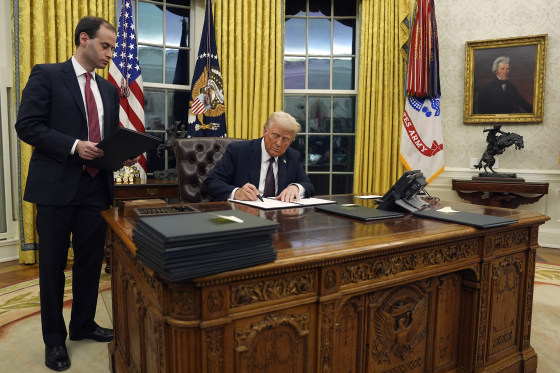
Public health officials in the United States have been instructed to cease their collaboration with the World Health Organization, with immediate effect.
On Sunday evening, John Nkengasong, a representative of the Centers for Disease Control and Prevention, addressed a message to the agency’s senior management informing them that all employees who collaborate with the WHO must cease their activities immediately and wait for additional instructions.
The abrupt halt, according to experts, was unexpected and would delay efforts to look into and try to stop Marburg virus and mpoxin outbreaks in Africa as well as brewing threats from other countries. Additionally, it coincides with global health officials keeping an eye on avian flu outbreaks among cattle in the United States.
The stop-work edict, according to a copy of Nkengasong’s memo seen by the Associated Press, applies to all CDC employees interacting with WHO in person or virtually through technical working groups, coordinating centers, advisory boards, cooperative agreements, or other channels. Additionally, it states that CDC employees are not permitted to attend WHO offices.
The executive order that President Trump released last week to start the process of the United States pulling out of WHO did not go into force right away. Congress must approve leaving WHO, and the United States must pay its debts for the current fiscal year. Additionally, the United States must give a year’s notice.
Additionally, his administration instructed government health authorities to cease most public contacts by the end of the month.
Dr. Jeffrey Klausner, a public health expert from the University of Southern California who works with WHO on efforts to combat sexually transmitted infections, stated that ceasing to communicate and meet with WHO is a major issue.
People anticipated a gradual departure. Klausner claimed to have heard about it from someone at the CDC and that it has truly caught everyone off guard.
He went on to say that communication with WHO is reciprocal and that U.S. health officials and WHO both gain from each other’s experience. The partnership gives the United States access to information about breakthrough testing and treatments, as well as information about new outbreaks, which can help us protect Americans both domestically and overseas.
The stoppage was verified by a U.S. health official who spoke on condition of anonymity and was not allowed to discuss the document.
Concerns regarding the withdrawal were directed to U.S. officials by a WHO representative.
An email request for comment was not immediately answered by U.S. Department of Health and Human Services officials.
